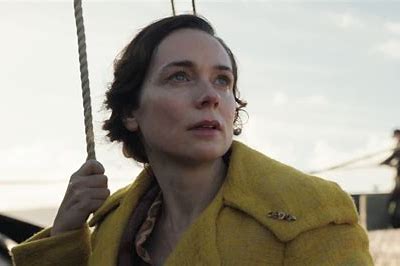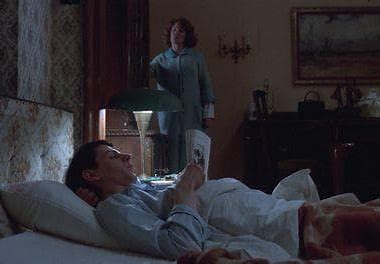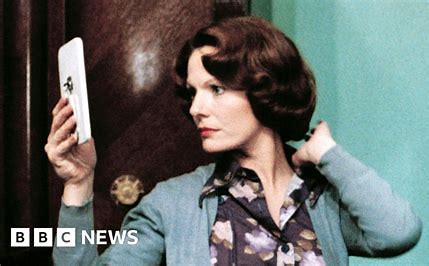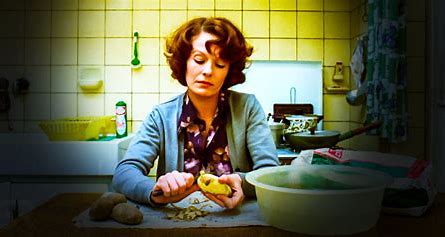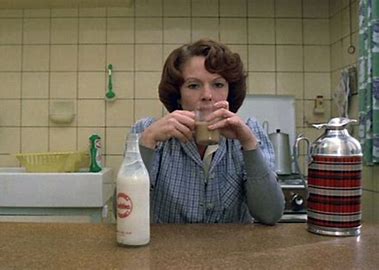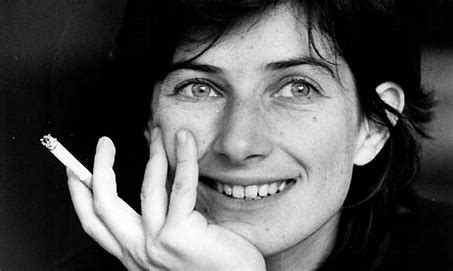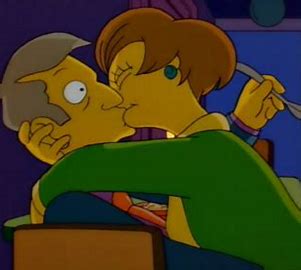**THERE WILL BE SOME SPOILERS**
**AS OF THIS WRITING, THE FILM IS AVAILABLE FOR STREAMING ON HBOMax**
My love of cinema is also closely tied to my love of the theatre.
Over the last 25 years, one of the more fascinating and consistent playwrights to emerge in the field is Ireland's darkly comedic prince Martin McDonagh.
McDonagh's work often has a very bleak and cynical edge with a sharp wit dripping through as if it were pouring out of a juicer.
Plays like The Beauty Queen of Leenane, The Pillowman, The Lieutenant of Inishmore, and A Behanding in Spokane all had elements that seemed to combine that strong brooding edge but with such surprising humor.
Despite his success and the admiration that he has amongst theatre afficionados, McDonagh has always had some reservations about theatre.
He was once quoted as saying that he holds "a respect for the history of films, and a slight disrespect for theatre."
He did go on to clarify that he didn't entirely disrespect it, but he does have a certain point when talking about the rising costs for tickets to see plays and how it creates a certain "elitism". Despite his darker sensibilities and the acclaim his plays have received, he still feels that "theatre is never going to be edgy in the way I want it to be".
So, over the last 15 years, McDonagh has been building a reputation as a filmmaker.
In 2004, he won an Oscar for his short film Six Shooter featuring his frequent acting collaborator Brendan Gleeson and soon followed that up in 2008 with the truly brilliant In Bruges, starring Gleeson and Colin Farrell.
2012's Seven Psychopaths didn't gain as much attention as In Bruges but was quite fantastic in its own right, and also had an amazing ensemble cast.
He really hit it big in 2017 with Three Billboards Outside Ebbing, Missouri which honestly came close to winning Best Picture and netted Oscar wins for actors Frances McDormand and Sam Rockwell. Despite some of the more divisive elements that made some not really appreciate it, I loved the film.
It has been 5 years since that film was released but now, McDonagh is back, and he has teamed up with Farrell and Gleeson again on The Banshees of Inisherin, the first film of his that sort of feels connected to the kind of material he writes for the stage (even down to a similar kind of title).
I would even go as far to say that the film in style and plot and tone reminds me of his earliest breakout play, The Beauty Queen of Leenane, which is often not discussed these days as some of his other work.
Considering all of his other films have had more of high-octane tone, like the mobster edges of In Bruges or the action-packed shoot-outs of Seven Psychopaths, there is something weirdly surreal and calm and somewhat tragic about The Banshees of Inisherin.
As it stands, while it may not be my favorite film by McDonagh (I still consider that to be Three Billboards), I was rather fond of Banshees...and it is undoubtedly one of the best movies of the year.
Set on the isle of Inisherin in 1923, at the tail end of the Irish Civil War, we meet Padaric Suilleabhain (Colin Farrell) who lives with his sister Siobhan (Kerry Condon).
Padaric goes to fetch his friend Colm (Brendan Gleeson) for a pint at their local pub only for him to just sit in his home, unmoved and smoking.
It turns out that Colm has reached a bit of an impasse with Padaric and he wants to end their friendship. This isn't just some sort of massive conflict that we aren't fully aware of...it is truly an overnight decision on Colm's part...and it leaves Padaric very confused and hurt.
The remarkable thing about this plot is how much McDonagh mines out of it. When you just state the plot in that manner, you think "How can one manage to stretch it out for nearly 2 hours?!"
McDonagh makes it work...and the little layers he adds with the tonal shifts and unexpected surreal edges give it a unique flavor. It certainly feels a lot like a McDonagh project, but he also shows immense growth as a filmmaker, too.
He showed great competence and flair as a director on all of his previous films, but here, he ups the visual aesthetic greatly and I think that the relative basic nature of his direction of Three Billboards (which I agree with in theory) is what led to him getting snubbed for a Directing nod that year. I don't think he will get snubbed this time...and if anything, I think he is going to win Original Screenplay.
As a director though, I almost felt like he took an Ingmar Bergman dread aesthetic out of The Seventh Seal and placed in a world of Jim Sheridan, director of such films as My Left Foot or The Field or the underrated In the Name of the Father.
Despite the scope of sweeping cinematography that features some truly gorgeous shots of the landscape and the ocean, it is certainly McDonagh at his most intimate a filmmaker. I appreciate that he is broadening his scope while also finding ways to keep his films fresh.
And it is also a true joy to watch Colin Farrel and Brendan Gleeson act again after they made for a truly glorious pairing in 2008's In Bruges.
Gleeson does well in a sterling role, which is no surprise, but he manages to make the character compelling even though he is the one who is essentially casting Farrell's character aside for seemingly the only reason being that he grew to find him dull and with no cultural insight.
Farrell, it must be said, is fantastic and this might be some of his best work. I could even see him sneaking in to win the Best Actor Oscar for this performance. It isn't an undeniable performance necessarily, but I was very taken in to how much he gave the role.
As his sister Siobhan, Kerry Condon, who is best known for her role as Mike Ehrmantraut's daughter-in-law Stacey on Breaking Bad and Better Call Saul, is truly a scene-stealer.
She is strong and feisty and independent and speaks her mind...and in a key moment, local policeman Peadar Kearney makes a point to say that no one likes her.
This deeply affects her as we see her crying herself to sleep that night. It is clear that she is a woman who is destined for better things and that people around her are not helping her achieve her full potential. She is full of love, but she is a no-nonsense lady...I trust that we will see her get an Oscar nomination as well.
Near the end of the film, Siobhan does get a position to work for a library on the mainland and chooses to take it leaving Padaric alone. When she leaves, she tries to get him to join her, but it seems as if both are choosing to pursue their own lives and it is uncertain when they will see each other again.
Speaking of the policeman I mentioned a little bit ago, Officer Kearney is a jackass...and the film has no problem presenting him as a problematic figure.
When Gleeson's Colm goes to a confessional at one point in the film, the priest makes a point to say that Colm shouldn't have punched Kearney as punching a policeman is a sin.
Colm replies "If punching a policeman is a sin, then we may as well pack up and go home".
Kearney also has a young son named Dominic, played by the charming Barry Keoghan who has been a part of such recent projects as Dunkirk and the masterpiece miniseries Chernobyl. Kearney beats his son frequently and, we discover, sexually abuses him.
Dominic is portrayed as being rather "dim" and a local troublemaker, but he is incredibly sweet and has a heart of gold. Keoghan lights up the screen whenever he is on it, and perhaps in one of the more difficult scenes to watch, he tries to ask Siobhan out on a date despite their over 10-year age difference. Throughout the film, Siobhan treated Dominic as a nuisance but in this moment, you could truly see that she felt horrible for hurting him. Both Condon and Keoghan sell this scene masterfully.
When we find out that Dominic dies via drowning (and it isn't sure if it was accidental or suicide), I felt immense sadness for him. Keoghan, if there is any justice, should also get an Oscar nod for this.
Perhaps one of the more brutal aspects of the film involves Jenny, a miniature donkey that is almost like a dog to Padaric.
Earlier in the film, to try to prove his point to Padaric, Colm threatens to cut off his own fingers for every time he attempts to talk to him. Padaric doesn't believe him...and the trailer showcases this moment for the humor of it...but Colm isn't kidding. He cuts off a finger and throws it at Padaric and Siobhan's door.
Padaric makes a valid point though.
If you want to make music (which is Colm's claim as he feels he can live on forever if he creates great music), why cut off your fingers?
Eventually, after multiple encounters, Colm cuts off the remaining four fingers on his hand and throws them at the house...which leads to Jenny attempting to eat one and choking to death.
This leads Padaric to joining the so-called impasse himself, but he goes a step further...he intends to burn down Colm's house and he hopes Colm will be inside when he does...but even if Colm did indirectly kill Jenny (which he feels horrible about), Padaric doesn't want Colm's dog to perish so he takes him with him.
There is a strong bond to the love of animals in this film that is rather sweet and adds to the tragic nature. It sort of does give that vibe that animals are simply better than people...which is, undoubtedly, true the majority of the time.
The surreal tragicomic nature of The Banshees of Inisherin makes for a rather interesting and eclectic offering to this movie award season. The main quartet of Farrell, Gleeson, Condon, and Keoghan are truly splendid. McDonagh shows new shades of himself both as a writer and a director...and honestly, much like his plays, I will always be willing to see what he comes up with next.
RATING: **** 1/2 out *****





